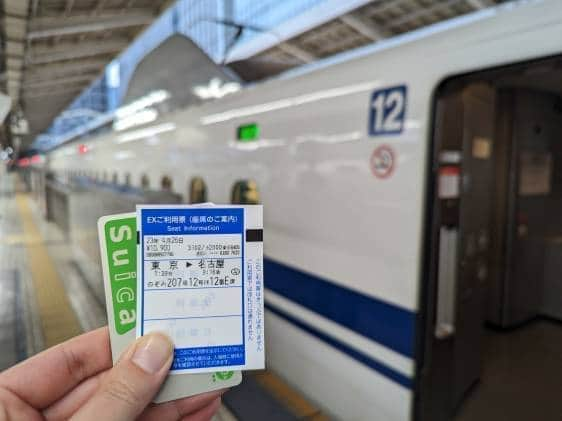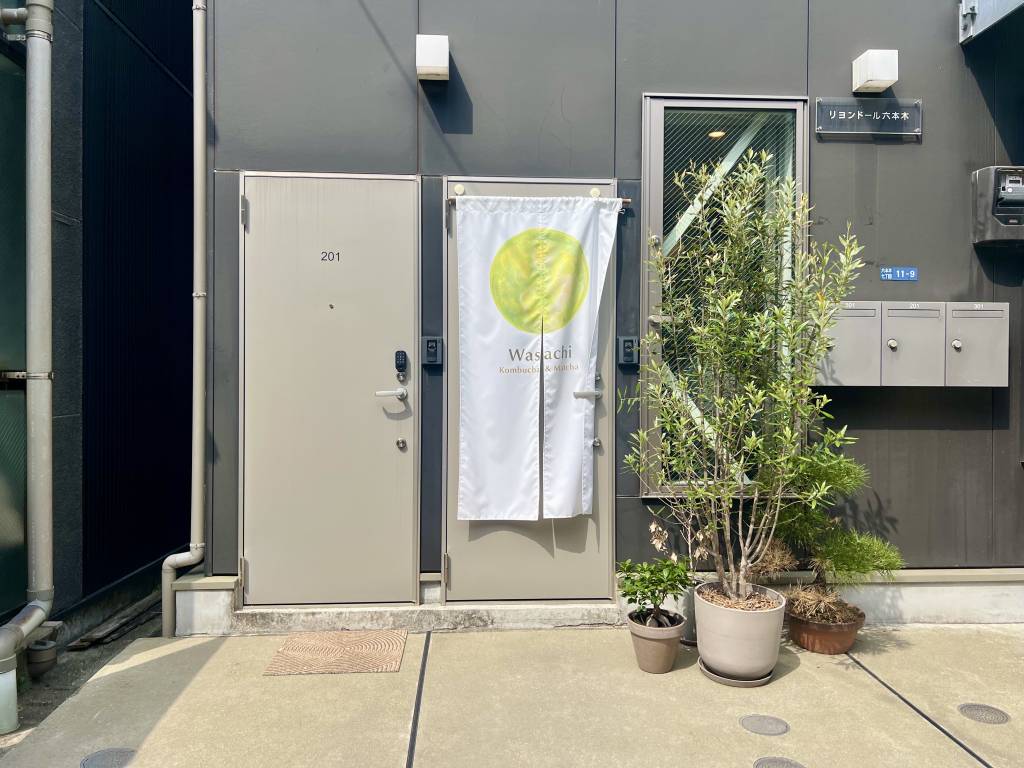If you’re a second language learner, you might agree that the nervous excitement of starting a conversation is two-fold. Firstly, you have to muster the courage to talk to a native speaker, and then (realizing you’ve gotten yourself into a brave mess), you need to figure out what to say next. But that’s all part of the learning curve!
You can improve your Japanese skills by listening to and practicing conversations you might actually face. Whilst acknowledging this divulges my recent guilty pleasure, shows like Love is Blind: Japan, are actually a great way to witness conversations in action, too.
To help you build confidence when meeting new people, here is a basic guide to Japanese conversation-starters (from beginner to intermediate scenarios).
Japanese Conversation Basics
Japanese has informal, polite, humble, and honorific forms (and variations within them!). Without getting bogged down in details, it’s best to stick to the basic polite form when you’re starting out and meeting new people, as this demonstrates respect. Here are two key points to remember:
- Add desu (です) and masu (ます) to your verbs (as you’ll notice in the scenarios below).
- Add san (さん) after someone’s name to show respect (unless they say otherwise). Remember, this doesn’t apply to yourself!
How to introduce yourself
When it comes to introducing yourself in Japanese, you can simply introduce your first name, which likely comes naturally. However, you might want to mention your surname/ full name in work contexts (as most Japanese do).
- For most occasions, you can use:
Watashi no namae wa ____ desu(私の名前は__です) – My name is ____. - For casual/ simple conversation, you can use:
____ desu (です) – I’m ____. - For formal contexts, you can use:
Watashi wa ____ to moushi masu(私は__と申します) – My name is ____.
5 Essential greetings
- Konnichiwa (こんにちは ) – Hello
- Ohayou gozaimasu (おはようございます) – Good morning
- Konbanwa (こんばんは) – Good evening
- Hajimemashite (はじめまして) – Nice to meet you
- Ogenki desuka (お元気ですか?) – How are you? (Generally, if you’ve met them before)
5 Polite expressions
- Arigatou gozaimasu (ありがとうございます) – Thank you
- Sumimasen (すみません) – Excuse me / Sorry
- Gomen nasai (ごめんなさい) – Sorry
- Yoroshiku onegaishimasu (よろしくおねがいします) – Thank you in advance (Varies with context, but generally used to express gratitude going forward e.g. nice to meet you, looking forward to working with you)
- Otsukare sama desu (おつかれさまです) – Good work / Thank you for your hard work (This phrase is often used to show appreciation for colleagues after a day’s work)
3 Ways to seek clarification
Stuck in a conversation? We’ve all been there. That’s when you can let your conversation partner know you don’t understand.
- Wakarimasen (分かりません) – I don’t understand
- Mouichi do onegai shimasu (もう一度お願いします) – Could you please repeat that?
- Sore wa dou iu imi desu ka? (それはどういう意味ですか?) – What does that mean?
Beginner Scenarios
To help you with pronunciation as well as to get familiar with hiragana (simple phonetic lettering) and katakana (phonetic lettering for foreign words), we’ll include basic Japanese (にほんご), Romaji (romanised Japanese) and English variations for each example.
To make the most of this guide: If you see a word in [square brackets], you can replace it with a relevant name, place, hobby etc. to personalize the question or comment.
Scenario 1: Meeting a friend of a friend
Even if you’re meeting someone through a friend, the basic polite form would still be suitable, since you’re not yet acquainted. You can see this with the use of desu (です) and san (さん) in this example.
| Speaker | Romaji | English |
|---|---|---|
| Mark (M) | Konnichiwa! Watashi no namae wa [Māku] desu. Anata no namae wa nan desu ka? | Hello! My name is [Mark]. What is your name? |
| Kaoru (K) | [Māku] san, konnichiwa! Watashi no namae wa [Kaoru] desu. | Hi [Mark] san! My name is [Kaoru]. |
| M | Anata no shigoto wa nan desu ka? | What work do you do? (What is your job?) |
| K | Watashi wa [webu dezainā] desu. | I am a [web designer]. |
| M | Doko shusshin desu ka? | Where are you from? (e.g. hometown/ region) |
| K | Watashi wa [Miyagi-ken] shusshin desu. | I am from [Miyagi prefecture]. |

Scenario 2: Meeting a fellow student
In this example, Chelsea and Shoko use the casual/ simple introduction ____ desu and watashi wa ____ desu to introduce themselves. While still polite, this tends to be more common among students or younger speakers.
| Speaker | Romaji | English |
|---|---|---|
| Chelsea (C) | Hajimemashite. [Cherushii] desu. Yoroshiku onegai shimasu. | Nice to meet you. I’m [Chelsea]. (Thank you in advance/ I’m looking forward to the time ahead). |
| Shoko (S) | Konnichiwa, [Cherushii] san. Watashi wa [Shoko] desu. | Hi [Chelsea], my name is [Shoko]. |
| C | Watashi wa ryuugakusei desu. Anata wa ryuugakusei desu ka? | I’m an exchange student. Are you an exchange student? |
| S | Iie, watashi wa koko no daigakusei desu. | No, I’m actually a university student here. |
| C | Nani wo benkyou shiteimasu ka? | What are you studying? |
| S | Watashi wa [nihon no rekishi] wo benkyou shiteimasu. | I’m studying [Japanese history]. |
Scenario 3: Talking about interests
Talking about interests and hobbies is a great way to get to know more about someone. In this example, Arman and Maki have already introduced themselves.
| Speaker | Romaji | English |
|---|---|---|
| Arman (A) | Anata no shigoto wa nan desu ka? | What work do you do? (What is your job?) |
| Maki (M) | Watashi wa [kangohu] to shite hataraite imasu. | I work as a [nurse]. |
| A | Shumi wa nan desu ka? | What are your hobbies? |
| M | Watashi wa [dansu] to [gitā] ga suki desu. | I like [dancing] and [guitar]. |

Intermediate Scenarios
To familiarize yourself with kanji (characters originally from Chinese script), we have included typical Japanese (日本語) for these intermediate level scenarios.
Scenario 4: Meeting a colleague
Generally speaking, work or business context calls for extra formality in Japan. In this example, we can see Jun introduce himself by first name, while Sato introduces himself by surname.
| Speaker | Romaji | English |
|---|---|---|
| Jun (J) | Hajimemashite. [Jun] to moushi masu. Yoroshiku onegai shimasu. | Nice to meet you. My name is [Jun]. I am looking forward to working with you. |
| Sato (S) | [Jun] san, kochira koso, yoroshiku onegai shimasu. Watashi wa [Sato] to moushi masu. | [Mr. Jun], the pleasure is all mine. My name is [Sato]. |
| J | Dochira no bushou ni imasu ka? | Which department are you in? |
| S | Watashi wa [māketingu] no bushou ni imasu. | I am in the [marketing] department. |
| J | Shigoto igai dewa nani wo shiteimasu ka? | What do you do outside of work? |
| S | Watashi wa yoku jimu ni ikimasu. | I go to the gym often. |
Scenario 5: Talking to a friendly waiter/ bartender
If you head to a quiet eatery or bar, you’ll most likely find a native speaker who would be just as happy to chat as you are. Asking for recommendations or meibutsu (名物) – the specialty food of a region, is a great way to start. You can also check out these tips for ordering in Japanese.

| Speaker | Romaji | English |
|---|---|---|
| Customer (C) | Sumimasen, osusume wa arimasu ka? | Excuse me, do you have any recommendations? |
| Waiter (W) | Soudesu ne. Sakana ga suki nara, honjitsu no sashimi wo osusume shimasu. | Let’s see. If you like fish, I recommend the sashimi of the day. |
| C | [Nikko] no meibutsu wa nan desu ka? | Excuse me, what is the specialty food of [Nikko]? |
| W | [Nikko] no meibutsu wa [yuba] desu. | The specialty food of [Nikko] is [yuba]. |
| C | Ninki no nomimono wa nan desu ka? | What is a popular drink here? |
| W | Kosumoporitan no kakuteru ga ninki desu. | The cosmopolitan cocktail is popular. |
Here’s a recap of the conversation-starters we’ve covered:
Beginner
- Anata no namae wa nan desu ka? (あなたのなまえはなんですか?) – What is your name?
- Anata no shigoto wa nan desu ka? (あなたのしごとはなんですか?) – What work do you do? (What is your job?)
- Doko shusshin desu ka? (どこ出身ですか?) – Where are you from? e.g. hometown/ region, often within Japan (Note: Doko kara kimashita ka? どこからきましたか?is a variation of the same question, but often used to refer to a different country)
- Anata wa ryuugakusei desu ka? (あなたはりゅうがくせいですか?) – Are you an exchange student?
- Nani wo benkyou shiteimasu ka? (なにをべんきょうしていますか?) – What are you studying?
- Shumi wa nan desu ka? (しゅみはなんですか?) – What are your hobbies?
Intermediate
- Dochira no bushou ni imasu ka? (どちらの部署にいますか?) – Which department are you in?
- Shigoto igai dewa nani wo shiteimasu ka? (仕事以外では何をしていますか?) – What do you do outside of work?
- Sumimasen, osusume wa arimasu ka? (すみません、オススメはありますか?) – Excuse me, do you have any recommendations?
- Sumimasen, [Nikko] no meibutsu wa nan desu ka? (すみません、[日光] の名物はなんですか?) – Excuse me, what is the specialty food of [Nikko]? (You can replace Nikko, a town in Tochigi prefecture, with another town or region.)
- Ninki no nomimono wa nan desu ka? (人気の飲み物はなんですか?) – What is a popular drink here?































